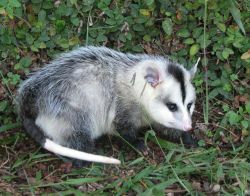Agriculture is a term that refers to the art of cultivating the fields, also representing the work and techniques used to obtain agricultural products.
Economist Colin Clark, responsible for dividing a country's economy into three categories, said that agriculture, together with forestry, livestock and fishing constitute the primary sector of the economy.
Since the development of plants is closely related to the characteristics of the soil (structure, texture, content of mineral substances, humus and microorganisms), the level of the water table and the climate (temperature, precipitation, wind), the maximum yields are obtained by cultivating the plants that are best adapted to the conditions of a given place.
Climatic conditions can only be improved under special circumstances, for example, through artificial irrigation or protection from adverse agents. However, the soil characteristics can be improved in a fruitful way, through the use of fertilizers, pH correctors or resorting to the drainage of very humid soils.
Agronomy is the science that analyzes the properties of soils and plants to improve techniques used in agriculture. In view of increasing population density, measures to increase yields by controlling climate and soil conditions are increasingly important. The practice of cultivation in greenhouses and the development of methods that prevent animals from destroying crops were very important.
The agricultural use of the soil began in the Neolithic period. In the different degrees of evolution that followed until the current development, the use of the hoe and plow, shooting animals (cargo), obtaining artificial fertilizers and introducing machines agricultural.
For several millennia, agriculture was the main economic activity in the world. Despite this, in the last two centuries, and especially in more industrialized societies, there has been a reduction in the number of individuals engaged in agriculture. This can be explained by the phenomenon of migration to cities. Despite this, technological advances allow the production of more agricultural goods with fewer people working in this area.
Agricultural yields fluctuate according to economic cycles, which implies constant intervention by the states regarding agricultural prices.
A farmer is a person who is engaged in agriculture, whether he is an owner, tenant or manager of an agricultural holding, without that for this it is necessary to have specific studies, since agricultural studies are not a precondition for exercising this profession.
family farming
It is not easy to conceptualize family farming, because as a concept it has changed over time. Family farming is seen as the cultivation of land by a family, where farmers are managers and workers of their own land.
However, family farming may not represent small production, small farmer or subsistence farming. Many of these terms imply that the farmer lives in a precarious situation, which may not be true.
Family farming differs from subsistence farming because in the latter, all products are used for the survival of the farmer and his family. Unlike commercial agriculture, in subsistence agriculture products are not sold.
Read more about family farming.
Organic agriculture
Also known as organic farming, organic farming refers to production without the use of pesticides, with the aim of obtaining healthier, more natural and greater durability. In many cases, agriculture is closely related to sustainable agriculture.
See the meaning of organic agriculture.
Agriculture in Brazil
Considered by many people as the world's breadbasket, Brazil is one of the largest agricultural producers in the world, with the main products being sugarcane, coffee, soybeans and corn. Agriculture is one of the main bases of Brazil's economy, where in 2008 more than 145 million tons of grain were produced.
In July 2013, of the 41 thousand jobs created in Brazil, 18 thousand were created in the area of agriculture.

